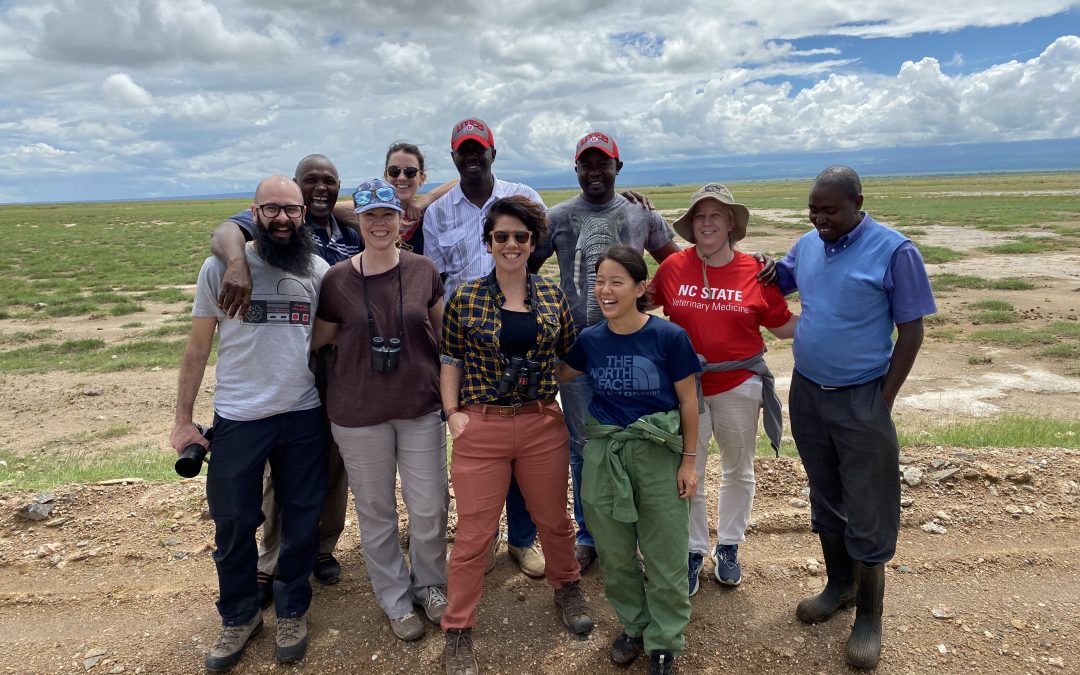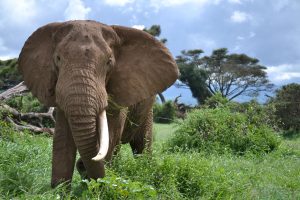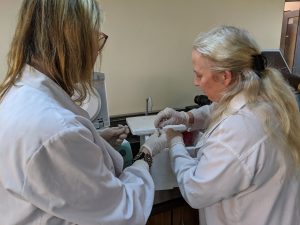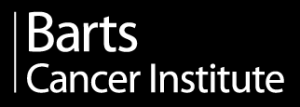Just before Covid-19 struck and the world changed, 5 members of ACE flew to Nairobi to spend 10 days working with their collaborators from the Kenya Wildlife Services (KWS) and the world-renowned Institute for Primate Research (IPR). Tara Harrison, Valerie Harris, Amy Boddy , Diego Mallo, Lisa Abegglen and Kathleen Noble made the trip was to assess the feasibility of investigating the incidence and type of cancer in wild animals, including elephants, zebras, rhinoceros and primates, some of the main types of animals that ACE studies in its cancer across species project.
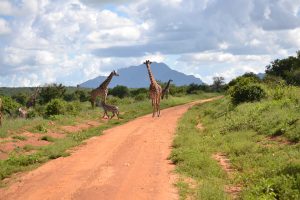
The ACE team spent two days each in the national parks of Amboseli and Tsavo West with mobile wildlife vets from KWS to understand their day to day care and surveillance of the animals.
Back in Nairobi, our Kenyan hosts were very generous with their time. They included KWS Forensics Director: Moses Otiende, veterinarian Dominic Mijele, and graduate student Samuel Omolo, and from IPR, the Director, Hastings Ozwara.
We discussed with them ways to develop strategies for collecting data that included age, sex, tumor location and tumor type when they came across animals affected by cancer in the wildlife parks.
The Kenyan teams also described the ecological factors such as pollution, human and animal interactions and changes in access to different diets that may influence the development of cancer in the wildlife. And they related how the veterinary staff care for sick animals, in particular, those affected by cancer.
In the spirit of true collaboration, the ACE team will be offering training opportunities to KWS staff and students from Kenyatta University, and there are plans for graduate student, Samuel Omolo, to visit one of the ACE labs at the University of Utah (where Lisa Abegglen is based) to learn how to assess the response of cells to DNA damage. How cells cope with this damage helps determine their success in avoiding becoming cancerous. Samuel will take this knowledge back to Kenya so that in the future, these types of tests can be performed on cells from wild animals to help us better understand the relationship between their response to DNA damage and their susceptibility to cancer.
The trip was a resounding success! We established a strong collaboration with the Kenyan vets who were eager to work with us and provided insight on the best ways to study cancer in wild animals. This transfer of knowledge has opened up new avenues of research that will enhance one of our main goals of ACE, to understand cancer in other species, which may suggest new strategies for improving human health.
The ACE visit to Kenya was partly funded by the Wildlife Cancer Observatory Network, through a grant from the Arizona Cancer Evolution Center.
